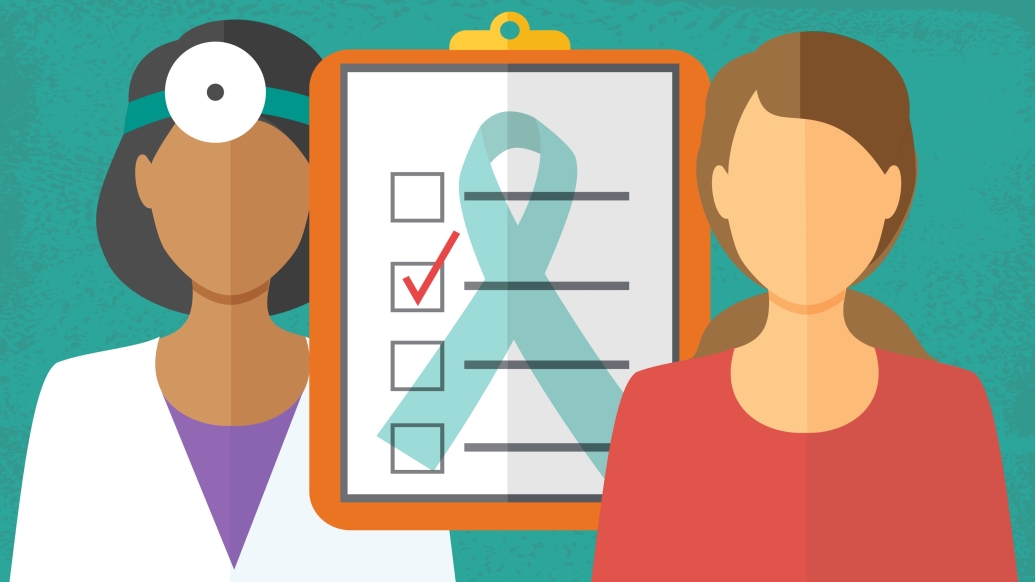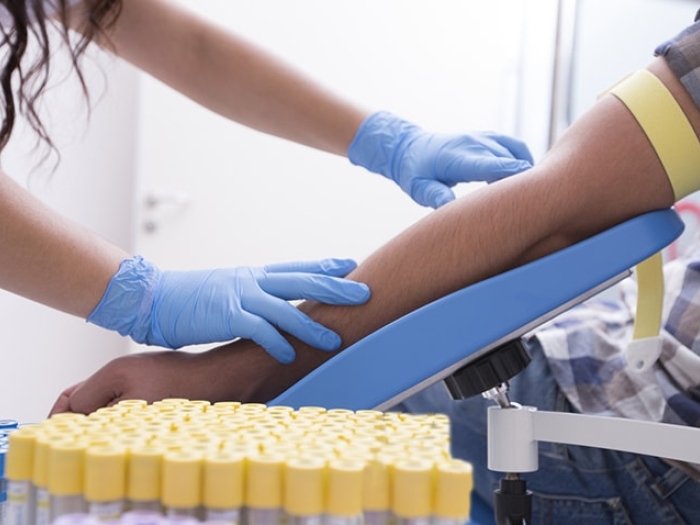If an abnormal Pap test has you worried — or maybe you haven’t yet received the screening — a Cancer AnswerLine™ R.N. explains what you need to know.
7:00 AM
Author |

We receive many calls at the Cancer AnswerLine™ about abnormal pap tests.
During one of these conversations, a woman asked me, "What can I do to avoid getting cervical cancer?"
SEE ALSO: What Happens to Your Body When You Stop Exercising?
Every woman is at risk for cervical cancer, but the good news is that when it's caught early enough, cervical cancer is treatable.
Reducing cervical cancer risk
The most important thing you can do to prevent cervical cancer is to be tested according to American Cancer Society guidelines. The Pap test (or Pap smear) and the human papillomavirus (HPV) test, which detects HPV, the sexually transmitted virus that causes cervical cancer, are used for this.
-
Pap tests can find abnormal cells that may turn into cervical cancer. Removal of the abnormal cells prevents cervical cancer. Pap tests can also find cervical cancer early, when the chance of being cured is very high.
-
In addition to the Pap test, the HPV test may be used for screening women who are 30 years old or older, or at any age for those who have unclear Pap test results. It also is used to provide more information when Pap test results are unclear for women aged 21 and older.
-
Women should receive a Pap test starting within three years after becoming sexually active, or no later than age 21.
-
If you are between 21 and 29 years old, it is important for you to continue getting a Pap test as directed by your doctor. Screening should be done every 2 to 3 years.
-
At age 30, Pap and HPV test frequency can drop to every 5 years. This is called co-testing and should continue until age 65, according to the American Cancer Society.
-
If you are older than 65 and have had a normal Pap test for several years, or if you had your cervix removed (for a non-cancerous condition, such as fibroids), your doctor may recommend discontinuing the Pap test.
Since the Pap test's introduction more than 50 years ago, the rate of death from cervical cancer has decreased dramatically.
In addition to screening, these behaviors also decrease your risk for the cancer:
-
Avoid contact with HPV. Because HPV is the main cause of cervical cancer and pre-cancer, avoiding exposure to HPV could help you prevent this disease.
-
Use condoms. While having sex, employing condoms the right way every time can provide some protection against HPV and other sexually transmitted diseases. Limiting your number of sexual partners can also help protect against sexually transmitted diseases and infections.
-
Don't smoke. If you do smoke, quit. Smoking increases the risk of developing cervical cancer lesions and smokers keep HPV infections longer than non-smoking women.
-
Get vaccinated. The HPV vaccine protects against the types of HPV that are most likely to cause cancer. It's most effective if a person is vaccinated before becoming sexually active. The three-part vaccine is recommended for 11- and 12-year-old girls and boys. Girls may also be vaccinated at age 9 or 10. The American Cancer Society also recommends that women aged 19 to 26 talk with their health care provider about their risk of previous HPV exposure and potential benefit from vaccination before deciding to get the vaccine.
If you haven't had your Pap test, it is important that you do so. Women need to be proactive in their own health care!

Explore a variety of health care news & stories by visiting the Health Lab home page for more articles.

Department of Communication at Michigan Medicine
Want top health & research news weekly? Sign up for Health Lab’s newsletters today!





